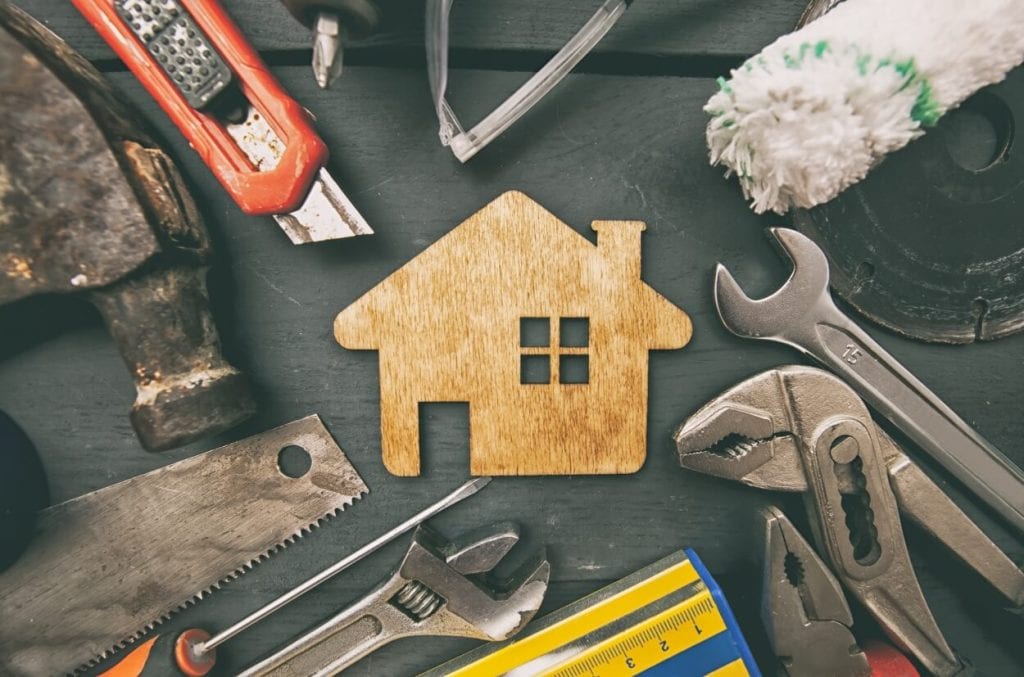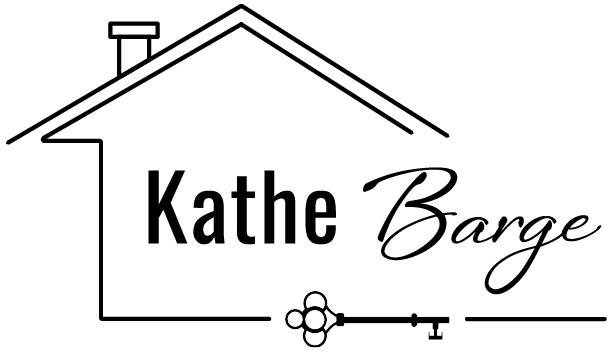by Kathe Barge | Mar 30, 2022 | Buyers, Buying Conditions, Contracts, Helpful Tips, Inspections, Listings, Market Trends, Property Updates, Property Value, Real Estate, Sellers

The market is so hot right now and we aren’t having any luck getting a home – should we waive home inspections?
You are correct –the market under $1million is very fast paced right now, and in many instances, the winning bidder has waived home inspections. That does seem to be what it may take to “win” right now but I cannot recommend that you make that choice. Now several months into the “waive inspections” craze we are starting to hear stories about the expected fallout from this hasty decision.
From the seller’s perspective, I highly recommend that you have your home pre-inspected and repair or disclose the relevant items. While an inspection might cost you upwards of $500, it is money well spent toward a smooth closing. If you have pre-inspected your home and provide the report to prospective buyers, you are doing your part to make sure your buyer is well-informed. In the absence of a pre-inspection, I do not recommend that you accept an offer from a buyer who has not inspected your home. I have started hearing from home inspectors that disgruntled buyers are seeking post closing inspections to find problematic items and sue the sellers for failure to disclose. You don’t want that to be you. If you have not pre-inspected, we can discuss strategies to allow a buyer’s inspection and still protect you.
From a buyer’s perspective, as we all imagined would happen, the post-closing stories are starting to mount about buyers who purchased without an inspection and are now having all sorts of forseeable issues – roofs leaking, furnaces failing… If you are going to make this risky choice, you need to do so knowing that you will be assuming the risk of potentially tens of thousands of dollars of issues The contract specifically states that your inspection is your opportunity to find issues – if you waive that, you will be fighting an uphill battle to recover against anyone. Before you make an offer without an inspection contingency, you really do need to ask yourself if you are prepared to absorb those costs!
[contact-form-7 id="115311" title="Get More Information Form"]
by Kathe Barge | Mar 8, 2022 | Buying Conditions, Helpful Tips, Inspections, Listings, Market Trends, Real Estate, Sellers

Our neighbor just had to replace their sewer line – is that a common home inspection repair?
Sewer lines have become as radon was 20 years ago – today’s hot button for home buyers. In some boroughs (Mt Lebanon, for example) the borough now requires that before a home seller can transfer ownership, the sewer line must be scoped and must be without issues. Here in the Sewickley area, we do not have any boroughs imposing any such requirement on home sellers yet, but many buyers today do have a scope performed of the sewer line as part of their home inspection. And yes, if issues are discovered, they do expect the seller to remedy them. If a sewer line needs to be replaced, the cost will likely be between $5,000 and $10,000.
Sewer lines are not something we think about on a daily basis. As long as we don’t have back-ups, we assume that all is well with the line. But this is not necessarily the case. With older homes, sewer lines were made of terracotta pipe and this can break easily and can also be easily infiltrated by tree roots. If you live in an older home and haven’t replaced your sewer line, there is a good chance you have some issues.
Paying for a sewer camera test is not anyone’s idea of a good time, but if you are contemplating a sale of your home, it is probably a smart, pro-active thing to do. If you discover a problem in advance, there may be some cost-effective options for you to solve the problem without a full replacement of the line. Sewer lines can often by lined with a plastic liner. Tree roots can often by removed by hydrojetting. If you wait for a buyer to perform the test, you may get stuck with a full new line — the buyer might not accept one of the compromise options. So its best to explore the sewer line now, before it becomes an issue, and make any needed corrections.
[contact-form-7 id="115311" title="Get More Information Form"]
by Kathe Barge | Feb 2, 2022 | Buyers, Buying Conditions, Inspections, Listings, Property Updates, Property Value, Real Estate, Sellers, Selling Conditions

Sometimes it seems like everything is breaking around our house and we get behind on repairs. Isn’t there some level of wear and tear buyers of “previously enjoyed” homes are expecting to have to accept?
The process of selling and buying a home involves many fine lines. How far do you take preparing your home for sale? Do you really need to address all of the items suggested by your agent, the home stager or the home inspector who did a pre-inspection? Do you really have to attend to everything your family has broken or worn out over the years
Anything that could come up on an inspection, if you know about it, really must be repaired or disclosed. My vote is repair. Even with items that are very obvious, when an inspector gets involved, he may blow the issue out of proportion and something that might have cost you $1000 to repair before you listed ends up costing you $3000 on the inspection request. If its something an inspector might find, you can bet he will find it and you will be expected to cover the cost of repair anyhow, so you might as well repair upfront.
Many buyers actually get quite nervous during the home inspection (also known as buyers remorse). If you happened to have gotten one of these buyers, it is possible that they could walk away from your deal if the inspection concerns feel too weighty to them. After you actually receive and negotiate the offer, the last thing you want to do is lose the buyer over items that you could have fixed but didn’t think anyone would notice or care about! In today’s market, they notice, they care. Sometimes they are willing to let you pay for the repair. Sometimes they just walk. Don’t take any chances. If you suspect it is likely someone would seek a repair, get it done!
Buyers, as much as I advocate for sellers to take care of the wear and tear items on their homes, it is important for you to be reasonable on your inspection requests as well. If you see an item that needs to be fixed while you are touring the home, take that into account when you make your offer and do not revisit it on the inspection. Inspection requests are supposed to be for items you didn’t know about and didn’t have a chance to adjust for in making your offer. Again, its a fine line buyers also walk in deciding what are fair and appropriate inspection requests of a seller.
[contact-form-7 id="115311" title="Get More Information Form"]
by Kathe Barge | Feb 21, 2021 | Blog, Buyers, Buying Conditions, Home Staging, Inspections, Market Trends, Property Updates, Property Value, Real Estate, Sellers, Selling Conditions

Sometimes it seems like everything is breaking around our house and we get behind on repairs. Isn’t there some level of wear and tear buyers of “previously enjoyed” homes are expecting to have to accept?
The process of selling and buying a home involves many fine lines. How far do you take preparing your home for sale? Do you really need to address all of the items suggested by your agent, the home stager or the home inspector who did a pre-inspection? Do you really have to attend to everything your family has broken or worn out over the years? Anything that could come up on an inspection, if you know about it, really must be repaired or disclosed. My vote is repair. Even with items that are very obvious, when an inspector gets involved, he may blow the issue out of proportion and something that might have cost you $1000 to repair before you listed ends up costing you $3000 on the inspection request. If it’s something an inspector might find, you can bet he will find it and you will be expected to cover the cost of repair anyhow, so you might as well repair upfront.
Many buyers actually get quite nervous during the home inspection (also known as buyers remorse). If you happen to get one of these buyers, it is possible that they could walk away from your deal if the inspection concerns feel too weighty to them. After you actually receive and negotiate the offer, the last thing you want to do is lose the buyer over items that you could have fixed but that you didn’t think anyone would notice or care about! In today’s market, they notice, they care. Sometimes they are willing to let you pay for the repair. Sometimes they just walk. Don’t take any chances. If you suspect it is likely someone would seek a repair, get it done!
Buyers, as much as I advocate for sellers to take care of the wear and tear items on their homes, it is important for you to be reasonable on your inspection requests as well. If you see an item that needs to be fixed while you are touring the home, take that into account when you make your offer and do not revisit it on the inspection. Inspection requests are supposed to be for items you didn’t know about and didn’t have a chance to adjust for in making your offer. Again, it’s a fine line buyers also walk in deciding what are fair and appropriate inspection requests of a seller.
[contact-form-7 id="115311" title="Get More Information Form"]
by Kathe Barge | Nov 30, 2020 | Blog, Buyers, Buying Conditions, Home Staging, Inspections, Market Trends, Property Updates, Property Value, Real Estate, Sellers
If there was one thing you would advise us to do to our home as we continue our months “at home,” in this global pandemic, what would that be?
 Whether you are planning to sell your home this coming year or not, the best thing you can do to your home is a home inspection! We all live in our homes but rarely take the time to stop and give them a careful look. Weather beats up the outside of our homes year round. Caulking fails, flashing fails, paint peels and exposes wood to rot. We forget to clean our gutters on a regular basis – gutters and downspouts fill with decaying debris, causing water to back up into our homes and cause mold problems. We forget to have our furnaces serviced and fittings loosen and cause condensate to leak and rust our furnaces. The list goes on and on. Simply living in and not doing a regular check up on your home, you are leaving it open to the possibility of major repair bills later and major depreciation in your investment’s value. A home inspection will give you a to do list of projects to tackle throughout the year to keep your home in great shape and maintain its value!
Whether you are planning to sell your home this coming year or not, the best thing you can do to your home is a home inspection! We all live in our homes but rarely take the time to stop and give them a careful look. Weather beats up the outside of our homes year round. Caulking fails, flashing fails, paint peels and exposes wood to rot. We forget to clean our gutters on a regular basis – gutters and downspouts fill with decaying debris, causing water to back up into our homes and cause mold problems. We forget to have our furnaces serviced and fittings loosen and cause condensate to leak and rust our furnaces. The list goes on and on. Simply living in and not doing a regular check up on your home, you are leaving it open to the possibility of major repair bills later and major depreciation in your investment’s value. A home inspection will give you a to do list of projects to tackle throughout the year to keep your home in great shape and maintain its value!
You may not think about this until you go to sell your home. Some of the wear and tear may be obvious to a buyer, who will typically have checked out every available home, be able to see signs of your “benign neglect,” and pass on yours because of its comparatively negative condition. Even if a buyer doesn’t’ notice at first, there is no doubt that a home inspector will notice! After working hard to get your home sold, you may find yourself in the all too common situation of being presented with a long list of inspection requests that you need to complete in order to hold your deal together, or worse yet, a buyer who backs out of your deal because the house needs “too much work,” leaving you in the position of having to fix everything and start all over again. A homeowner should expect simply keeping a home in acceptable condition will cost them $3,000 – $10,000 a year, depending on the size of the home – some years will be more if its time for a major project, and some less. If you’re not investing this, chances are someday you will when you are faced with a long list of inspection issues.
So while you remain “at home” waiting for the day the vaccine arrives, why not give your home a check up and attend to its needs! Give me a call if you need the names of reputable local inspectors.
[contact-form-7 id="115311" title="Get More Information Form"]
by Kathe Barge | May 31, 2018 | Buyers, Contracts, Inspections, Listings, Real Estate, Sellers
I’ve heard that agreements on many homes have fallen through lately from home inspections – why is that?
Our market has traditionally been one where buyers know they are buying old homes and allow the seller some leeway in not presenting a “perfect” home from an inspection standpoint. However, in many parts of the country, this is not the case. Sellers are expected to remedy all issues noted by home inspectors prior to closing. As more and more people migrate here from other parts of the country, our prices are going up, but so are the buyers’ expectations as to a seller’s responsibility for concerns discovered on a home inspection. At the same time, inspectors are getting significantly more particular. And so yes, it is absolutely possible to have purchased a home only two years ago and have new concerns arise that clearly existed and were overlooked when you bought your home. And yes, it is equally possible that you will be expected to fix them and if you refuse, your sale might fall through.
This can often leave a seller feeling like they are the unlucky one who got stuck holding the “hot potato.” As the years pass, the list of “hot button” issues mounts and if you are the owner when the issue is discovered, you will be the one paying the bill even though the home was bought and sold many times in advance of your ownership. These hot button issues include items such as radon, mold, damp basements, lead water lines, asbestos (fireplace inserts, duct tape, pipe wrap or flooring) knob and tube wiring and pushmatic electric panels. If your home has any of these issues, you should figure you will be the one footing the bill and address them before they become an issue on a home inspection.
The best way to prevent an inspection fall through or an unexpected bill for defects is to have your home inspected before you put it on the market. A pre-inspection will allow you the opportunity to fix those items that can be fixed and disclose the rest to save yourself from a laundry list of requests. Be sure not to ignore the small stuff that comes up or that you know is wrong. For example, when I list a home, I specifically ask sellers if all of their windows open, stay open, shut and lock, and if any are cracked or have broken seals. Sellers more often than not disclose no issues with their windows and yet it is one of the most frequent inspection deficiencies. Take the time to do your homework – get your home inspected – repair or disclose any possible concerns – and save yourself from a long last-minute repair list and potentially even from losing your sale.
[contact-form-7 id="115311" title="Get More Information Form"]
by Kathe Barge | Apr 20, 2017 | Blog, Buyers, Listings, Mortgage, Real Estate, Sellers
Our neighbors home was under agreement and we just heard that it didn’t appraise. Is this a common issue you face and how can it be prevented?
Appraisal failures have become more common since the 2008 recession and the tightening of lending standards. All lenders are required to use pools of appraisers – they cannot control where the appraisal order goes or who does the appraisal. In fact, lenders are to have no contact with the appraiser to avoid undue influence. Unfortunately, some lenders (typically the larger ones as compared to the small local lenders) use large appraisal placement services and an appraisal on a Sewickley home could end up being placed with an appraiser in Monroeville, or worse yet, in West Virginia or Ohio. These non-local appraisers do not know our market and often miss the subtleties of our neighborhoods and inventory. Additionally, many companies use very young people whom they pay a very low wage to complete the appraisal. It becomes a volume business that many rush through, often missing important details (like that third bathroom).
If an appraisal fails (meaning it comes in under the agreed upon purchase price), there is almost nothing anyone can do to correct that appraisal. Unless there is an egregious error, like missing a third bathroom, it is highly unlikely there will be an opportunity to increase the appraisal. Therefore, it is important to set yourself up for success at the time of the initial appraisal. To do this, I ask my sellers to provide a specific list of all updates they have made to their home in recent years. I then personally meet the appraiser at the home and make sure that he is taking note of all of its special features. I also provide him with a list of all of the home’s features and all relevant comparable sales and how they compared to the home he is appraising. By having personal contact with every appraiser and helping him to understand the nuances of our town and the home he is appraising, my sellers are far more likely to receive the appraisal they need to keep their deal on track.
Should your home fail to appraise, rather than reducing your purchase price to meet the appraised price, a creative solution is to pay for the buyer to change lenders and start the appraisal process all over again. This is usually less than $1000 and is usually cheaper than reducing the purchase price. I have seen appraisals come in more than $100,000 apart in a two week time period, which only accentuates how many appraisers just don’t understand our area. It’s usually not that the value isn’t there but that the appraiser just doesn’t get the market. This solution could get your buyer the home they want and you the price you agreed to.
[contact-form-7 id="115311" title="Get More Information Form"]
by Kathe Barge | Jul 14, 2016 | Blog, Home Staging, Inspections, Listings, Marketing, Pittsburgh, Real Estate, Sellers, Sewickley, Sewickley Herald
Dear Kathe,
Friends of mine just had the sale of their home fall through because of a home inspection. How can that be prevented?
Yes – sellers should have their home pre-inspected before listing to prevent these kinds of issues! Finding a buyer and agreeing on a purchase price is only one small component of a real estate transaction and yet it is often all that sellers focus on. What happens between then and closing, however, is often the more difficult part of the process. Issues with a home uncovered on an inspection often cost a seller thousands in unexpected repairs and when sometimes even result in a terminated transaction. Inspectors are incredibly thorough (sometimes even finding problems that aren’t problems) and so every home seller should anticipate that the home inspector will find deficiencies and that the buyer will expect correction.
All home sellers should seriously consider having their homes pre-inspected. For as little as $250 – $500 for a basic pre-inspection you will quickly have an insiders view of how a buyer’s inspector will assess your home. Use the inspection as a maintenance check list – find a handyman to come in and fix all of the little things so that they don’t come up again on a buyer’s inspection. If there are larger items that you do not have the ability to repair, such as a roof nearing the end of its useful life, get an estimate or two for the repair or replacement. Note the issue on your disclosure and include a copy of the estimate. This should prevent you from having to credit the buyer for the repair later – buyers are supposed to review the disclosure and take any disclosed items into account in making their offer to you.
Of course, if your inspection is good or just has a lot of little items that a handyman can fix, attach the handyman’s receipt showing the repair provide a copy of the inspection in the house for buyers to see with a note indicating that the home has been pre-inspected and repaired and that they buyer can buy with confidence knowing that they are buying a house in great shape! In a town full of older and aging homes, this will really help your marketing!
So before you list your home – consider a pre-inspection. It will give buyers the confidence they need to move ahead with a purchase, may combat concerns that there are likely problems that would lower their initial offer to you, and will hopefully result in a smooth transaction once you do have your home under agreement.
by Kathe Barge | Jul 10, 2015 | Blog, Inspections, Listings, Real Estate, Sellers, Sewickley Herald
Dear Kathe,
We would like to sell our home “as is”and avoid the hassle of repair negotiations. How do we do that?
“As Is.” The statement comes up more often than you might imagine. Negotiations commence on a home and frequently, sellers are not able to achieve their hoped for sales price. With a sales price lower than imagined, sellers often assert “well then they are buying it AS IS.” Quite a bold statement – is that really possible?
Put on the buyer’s hat for a moment. When buyers agree on a price to buy a home, they are assuming that all is in good order unless it is something obvious to them when they saw the home or it was on the Disclosure. If an inspection discloses major problems, how can the home possibly be worth what they had offered? For example, if the inspection shows the furnace needs to be replaced, how could the home possibly be worth what it was worth when it was believed that the home had a working furnace? Quite simply, it’s not. Suggesting that a buyer will need to take the home “as is” implies that the seller is hiding something – that there are problems that could drive the price down further when discovered.
So what’s a seller to do if he doesn’t want to get stuck footing major inspection repair bills? The two best options are the seller disclosure and a pre-inspection. It is wise to disclose absolutely everything that could possibly come up – your agent should be able to review the disclosure in detail with you and make certain that you aren’t forgetting things that could come up on an inspection. A pre-inspection is also critical for any seller who is inclined toward trying to sell “as is.” A buyer needs a fair opportunity to determine what the “as is” condition is and a pre-inspection is a critical piece of that puzzle. All conditions disclosed on the disclosure or in the pre-inspection can be excluded from the buyer’s inspection, dramatically decreasing the chance that there will be any surprises on the buyer’s inspection that the seller will be asked to pay for and significantly increasing the seller’s likelihood of achieving the illusive “as is” sale.
by Kathe Barge | Jul 15, 2012 | Blog, Home Staging, Inspections, Marketing, Real Estate, Sellers, Sewickley Herald
Dear Kathe,
Friends of mine just had the sale of their home fall through because of a home inspection. How can that be prevented?
Yes – sellers should have their home pre-inspected before listing to prevent these kinds of issues! Finding a buyer and agreeing on a purchase price is only one small component of a real estate transaction and yet it is often all that sellers focus on. What happens between then and closing, however, is often the more difficult part of the process. Issues with a home uncovered on an inspection often cost a seller thousands in unexpected repairs and when sometimes even result in a terminated transaction. Inspectors are incredibly thorough (sometimes even finding problems that aren’t problems) and so every home seller should anticipate that the home inspector will find deficiencies and that the buyer will expect correction.
All home sellers should seriously consider having their homes pre-inspected. For as little as $250 – $500 for a basic pre-inspection you will quickly have an insiders view of how a buyer’s inspector will assess your home. Use the inspection as a maintenance check list – find a handyman to come in and fix all of the little things so that they don’t come up again on a buyer’s inspection. If there are larger items that you do not have the ability to repair, such as a roof nearing the end of its useful life, get an estimate or two for the repair or replacement. Note the issue on your disclosure and include a copy of the estimate. This should prevent you from having to credit the buyer for the repair later – buyers are supposed to review the disclosure and take any disclosed items into account in making their offer to you.
Of course, if your inspection is good or just has a lot of little items that a handyman can fix, attach the handyman’s receipt showing the repair provide a copy of the inspection in the house for buyers to see with a note indicating that the home has been pre-inspected and repaired and that they buyer can buy with confidence knowing that they are buying a house in great shape! In a town full of older and aging homes, this will really help your marketing!
So before you list your home – consider a pre-inspection. It will give buyers the confidence they need to move ahead with a purchase, may combat concerns that there are likely problems that would lower their initial offer to you, and will hopefully result in a smooth transaction once you do have your home under agreement.










 Whether you are planning to sell your home this coming year or not, the best thing you can do to your home is a home inspection! We all live in our homes but rarely take the time to stop and give them a careful look. Weather beats up the outside of our homes year round. Caulking fails, flashing fails, paint peels and exposes wood to rot. We forget to clean our gutters on a regular basis – gutters and downspouts fill with decaying debris, causing water to back up into our homes and cause mold problems. We forget to have our furnaces serviced and fittings loosen and cause condensate to leak and rust our furnaces. The list goes on and on. Simply living in and not doing a regular check up on your home, you are leaving it open to the possibility of major repair bills later and major depreciation in your investment’s value. A home inspection will give you a to do list of projects to tackle throughout the year to keep your home in great shape and maintain its value!
Whether you are planning to sell your home this coming year or not, the best thing you can do to your home is a home inspection! We all live in our homes but rarely take the time to stop and give them a careful look. Weather beats up the outside of our homes year round. Caulking fails, flashing fails, paint peels and exposes wood to rot. We forget to clean our gutters on a regular basis – gutters and downspouts fill with decaying debris, causing water to back up into our homes and cause mold problems. We forget to have our furnaces serviced and fittings loosen and cause condensate to leak and rust our furnaces. The list goes on and on. Simply living in and not doing a regular check up on your home, you are leaving it open to the possibility of major repair bills later and major depreciation in your investment’s value. A home inspection will give you a to do list of projects to tackle throughout the year to keep your home in great shape and maintain its value!